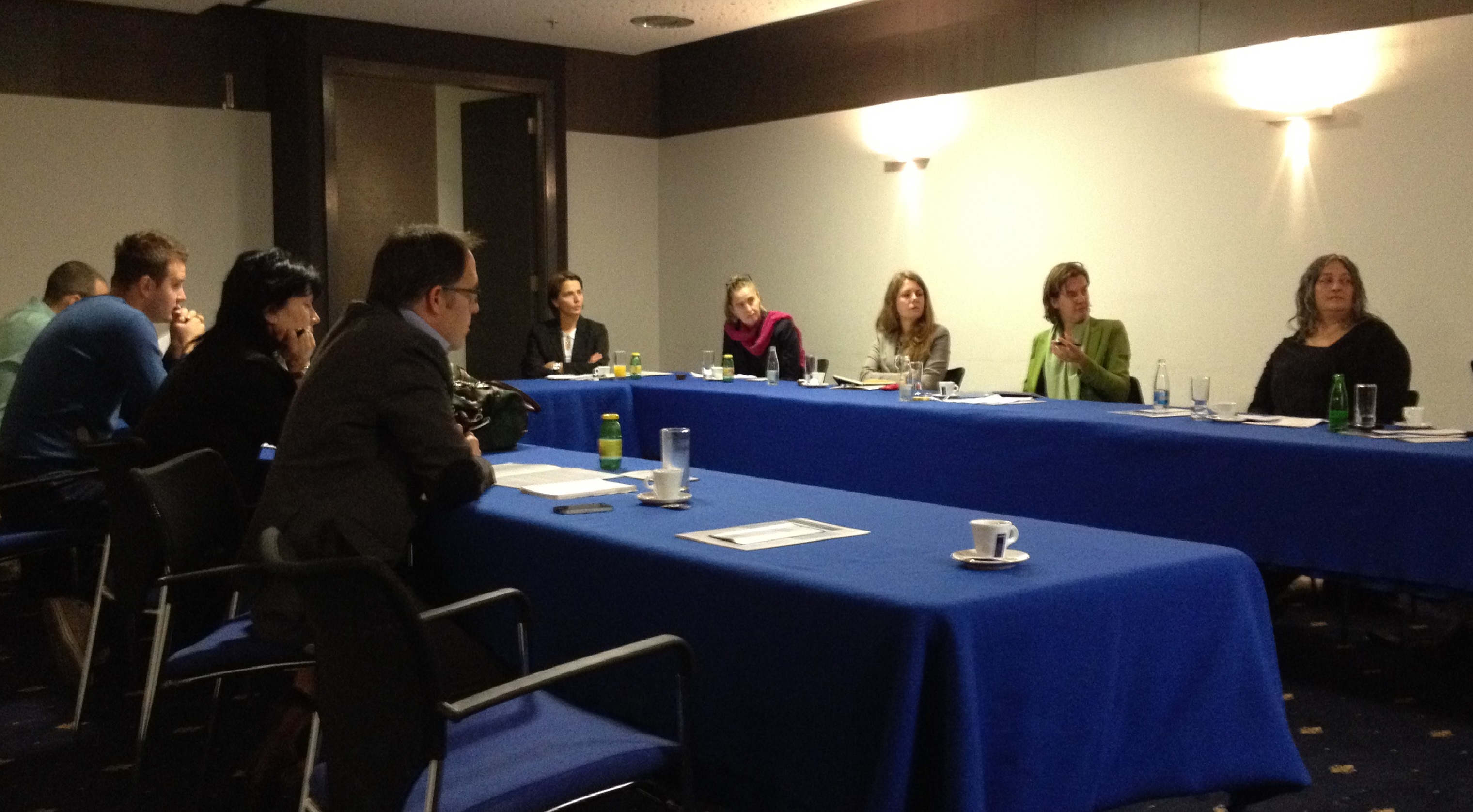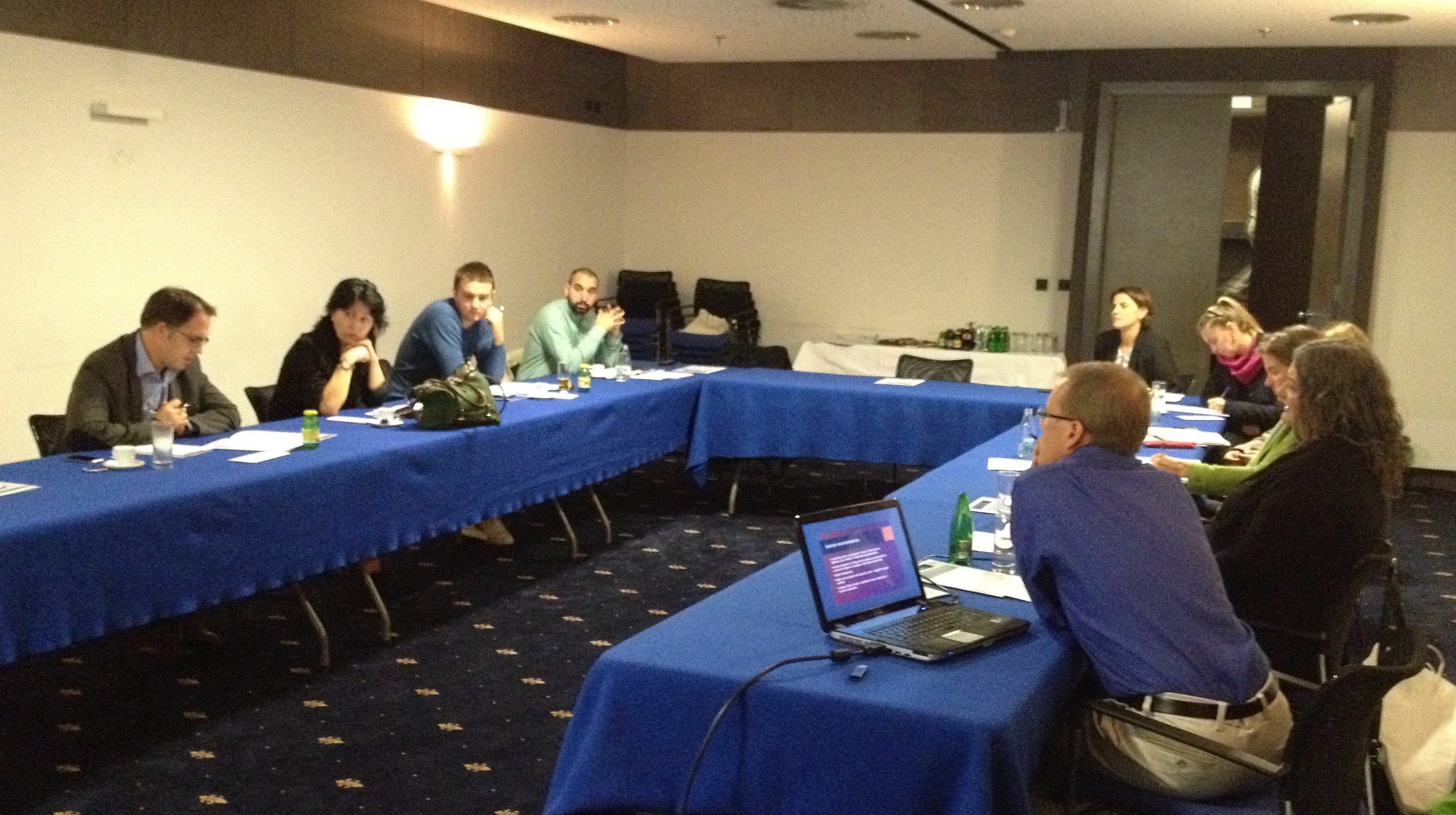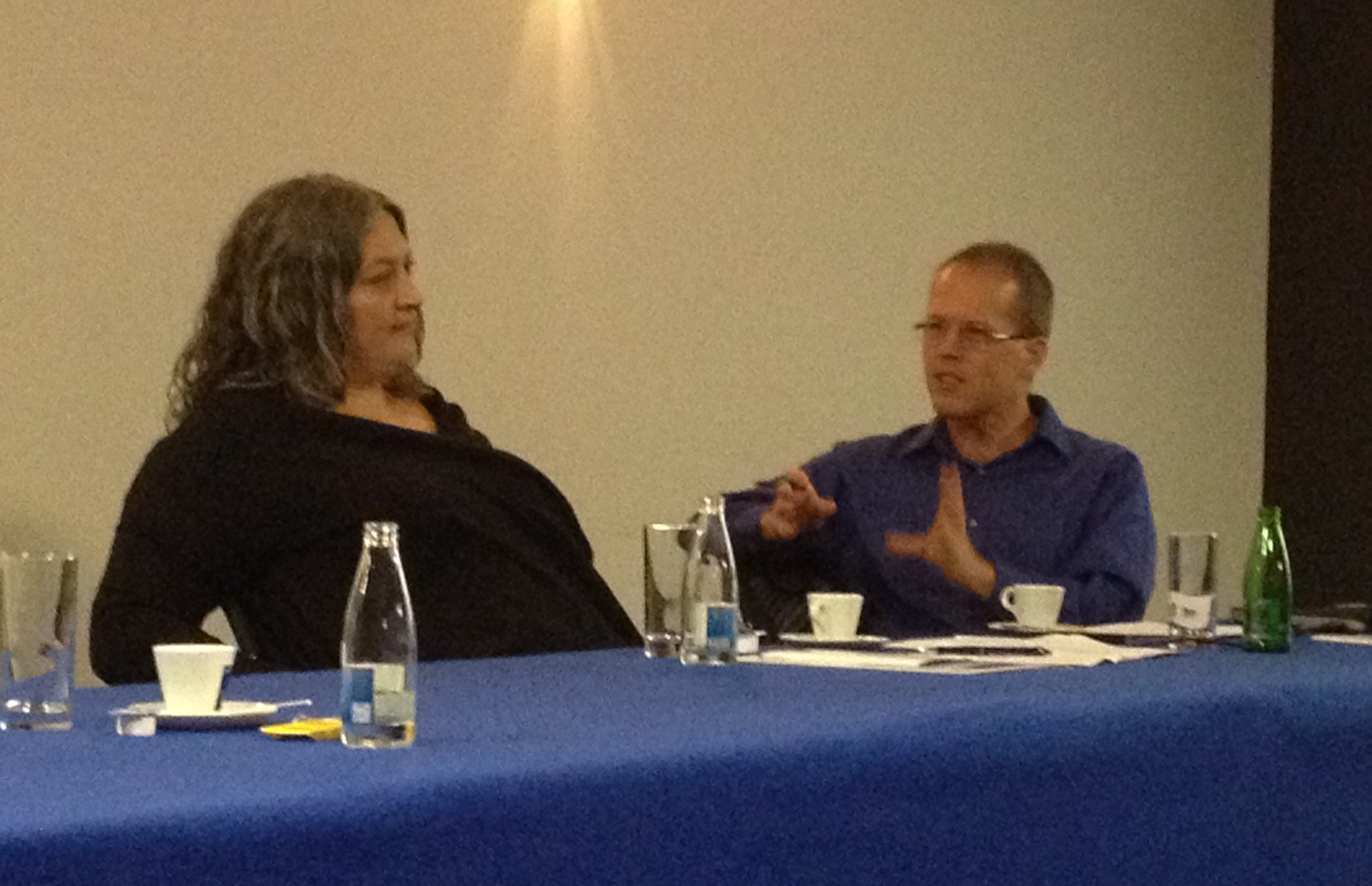Advocacy in BiH: Possibilities for Improvement
On Friday, 27.9.2013, in Sarajevo a presentation was held presenting research findings of the policy brief „Donor Support for Civil Society Advocacy in BiH”. The findings were presented to influential donors of civil society activities in Bosnia and Herzegovina.
 A strong civil society (CS) which is able to successfully advocate for groups of citizens is often seen as central to democratization and peacebuilding. Yet, after 17 years of donor support for CS, there are few signs of improvement in this direction. What have been the direct and indirect outcomes of previous efforts? What have both donors and CS actors learned from this? Can donors constructively and effectively support change agents within CS?
A strong civil society (CS) which is able to successfully advocate for groups of citizens is often seen as central to democratization and peacebuilding. Yet, after 17 years of donor support for CS, there are few signs of improvement in this direction. What have been the direct and indirect outcomes of previous efforts? What have both donors and CS actors learned from this? Can donors constructively and effectively support change agents within CS?
In order to better understand the topic, the authors approached and interviewed the 10 donors providing the most funds for CS and reviewed documents regarding their programs. In addition, 10 CS activists with experience with advocacy and receiving donor funds as well as a reputation for independence were also interviewed. The policy brief is also connected with an independent research project related to the legitimacy of CS actors and is based on additional interviews and academic literature. The authors attempted to understand donor constraints and rationales and to seek a balanced perspective on both donor responsibility and the limitations of Civil Society Organizations in the present Bosnian context, with the goal of making realistic recommendations.
 The brief addresses 3 key issues: which topics and forms of advocacy are most helpful; the effectiveness of donor support in building advocacy capacity; and the role of the EU.
The brief addresses 3 key issues: which topics and forms of advocacy are most helpful; the effectiveness of donor support in building advocacy capacity; and the role of the EU.
The authors of the research have given concrete recommendations for the improvement of donor support to BiH's civil society, which were discussed during today's presentation. The present donor representatives (USAID, Norwegian Embassy, Swiss Embassy, Embassy of Netherlands, OSCE, SIDA, and Friedrich Ebert Stiftung) emphasized the importance of such research and recommendations since they notice possibilities of improvement within their field of work in terms of needed inter-donor coordination and better communication, more verbal and moral support to civil society initiatives, etc. However, they also noticed the lack of coordination of civil society organizations in BiH and the issue of CSOs competing for funds instead of work in synergy.
 The authors of the research are Randall Puljek-Shank and Tija Memišević.
The authors of the research are Randall Puljek-Shank and Tija Memišević.
The research was published by the Peace Academy Foundation with the financial support of the Royal Norwegian Embassy in BiH.

